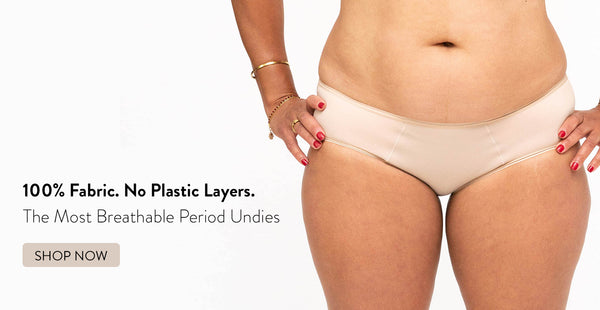Everything You Ever Wanted to Know About Bladder Leaking
Bladder leakage, also know as urinary incontinence, is not just a condition for new moms or those in their older years. Bladder leaking is an extremely common condition which occurs for a variety of reasons. The condition happens when your muscles become too weak to constrict the urethra and support your bladder.
Bladder leakage can also range in severity. Sometimes it’s a little dribble when you cough, sneeze or laugh too hard. Other times, however, it can be a sudden urge to urinate that’s so strong you don’t make it to a restroom in time. There is also something known as “overflow incontinence” which is when your bladder doesn’t completely empty when you urinate. Let’s uncover a little about bladder leakage, what causes it, and how you can prevent it and deal with it if it affects you.
What Causes Bladder Leaking?
Urinary incontinence can be caused by any number of things. It can be caused by underlying medical conditions or just everyday habits. For those with temporary bladder leakage, it can be stimulated by foods, drinks, and medications that have diuretic effects. These include alcohol, caffeine, artificial sweeteners, chili peppers, sedatives, muscle relaxants, and heart and blood pressure medications. Large doses of vitamin C can also cause bladder leakage. Medical conditions like urinary tract infections and constipation can also cause temporary urinary incontinence. More persistent bouts of leakage can be caused by pregnancy, childbirth, menopause, hysterectomy, an enlarged prostate, hysterectomy, obstructions in the urinary tract and neurological disorders like Parkinson’s Disease and Multiple Sclerosis.
What Can I Do to Prevent It?
The best things you can do to prevent bladder leaking is take great care of yourself. That includes maintaining a healthy body weight, eating more fiber, avoiding smoking (and quit if you are), and avoiding bladder irritants like alcohol, caffeine, and acidic foods. You should also do pelvic floor exercises to strengthen the area. Most women know they need to Kegel; however, there are other pelvic floor exercises you can do in addition to Kegels to create a firm and controlled pelvic floor such as bridges, jumping jacks, and wall squats. Just be sure to engage your pelvic floor while doing them.
How Can I Deal with it RIGHT NOW!?!?
People who know they suffer from instances of light bladder leakage can also do something to protect themselves—try Dear Kates! Their amazing Underlux lining helps keep small leaks at bay. Their thongs can hold up to one teaspoon of liquid and their full lining undergarments can hold up to three. The outer layer is leak resistant, so you stay dry and their antimicrobial properties protect against odors. You don’t have to worry about holding in a hearty laugh or stay inside during allergy season because they have you covered—literally.
Bladder leakage is no joke so if you are experiencing persistent leakage, check in with your doctor. Your doctor can then rule out any serious issues and get you on the path to drier days.


